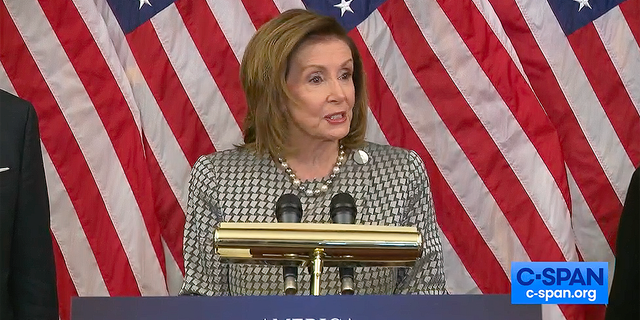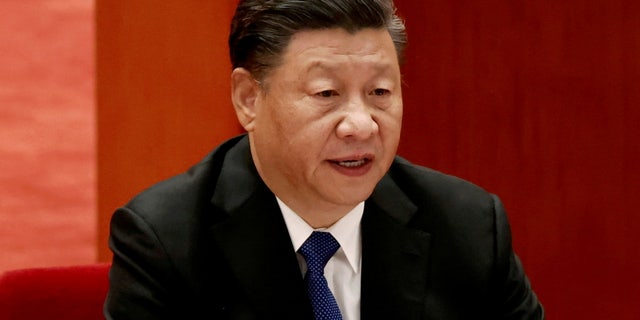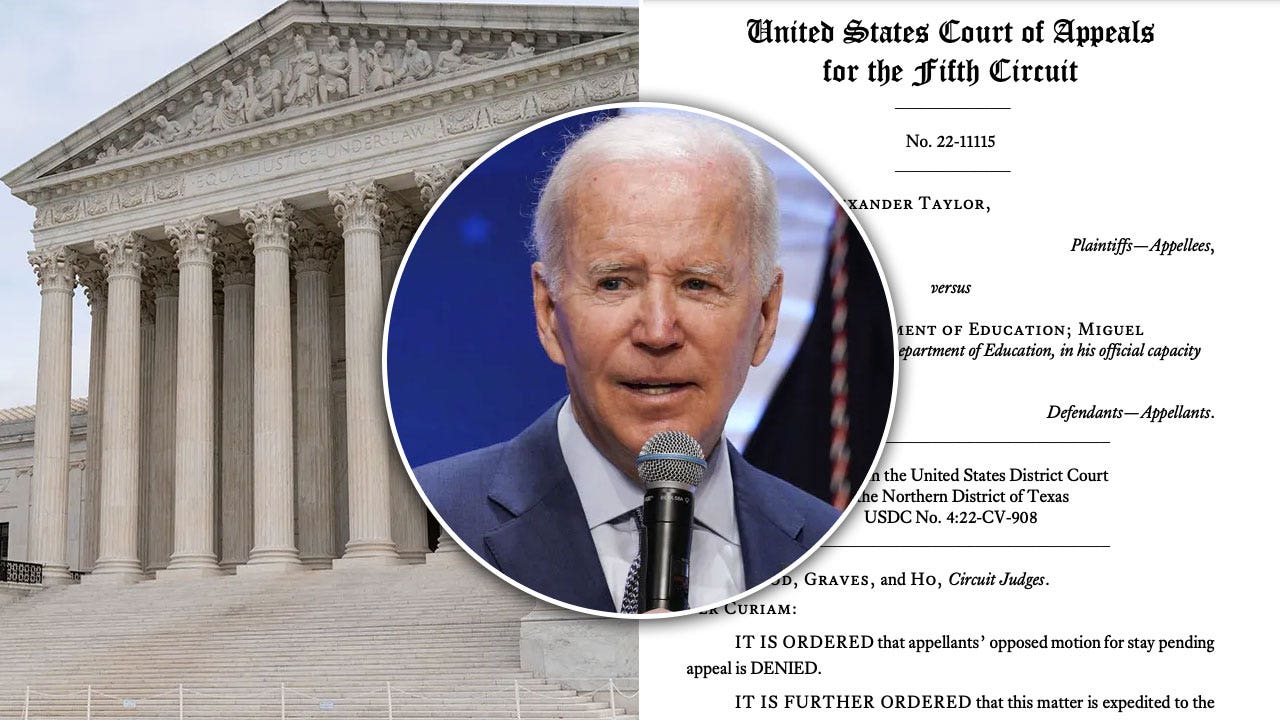The house-of-representatives” target=”_blank”>House of Representatives< said was designed to “keep America No. 1.”
The America COMPETES Act of 2022 passed by a 222-210 largely partisan vote on the same day the Beijing Olympics kick off in China.
The legislation includes a $52 billion “chips” fund to bring semiconductor fabrication back to the United States and address supply chain disruptions exacerbated by the coronavirus pandemic and a $45 billion investment to ensure critical goods are made in the United States rather than relying on China.
“It is about making America independent [and] self-sufficient,” Pelosi, D-Calif., said prior to the vote.

House Speaker Nancy Pelosi, D-Calif., speaks at an event to celebrate the America COMPETES Act at the Capitol on Feb. 4, 2022.
(C-SPAN screenshot)
By manufacturing microchips in the United States and shoring up the supply chain, Pelosi said the legislation ensures the U.S. is not depending on “countries of concern” for critical goods.
But, Republicans in House balked at being left out of the drafting of the 2,900-page bill and said the legislation has too many provisions that leave the U.S. vulnerable to China’s malign activity. Indiana GOP Rep. Jim Banks, the chair of the Republican Study Committee, dubbed the bill “the CONCEDES Act” saying it’s a gift to President Xi and is a toothless crackdown on China’s dominance.
PELOSI FEARS ‘FOR THE PHYSICAL SAFETY’ OF US OLYMPIC ATHLETES WHO SPEAK OUT AGAINST CHINA
Just one Republican, Rep. Adam Kinzinger of Illinois, joined Democrats in passing the bill, while Florida Rep. Stephanie Murphy was the lone Democrat to vote “no.”
Now, the House and Senate need to hash out the differences between their two competing bills in a conference committee.
The Senate passed its bipartisan version in June known as the Innovation and Competition Act of 2021, introduced by Senate Majority Leader Chuck Schumer, D-N.Y. The roughly $250 billion Senate legislation had broad support with a 68-32 vote and would bolster U.S. technology and scientific advancement in a bid to out-compete China.

FILE PHOTO: Chinese President Xi Jinping speaks at a meeting commemorating the 110th anniversary of Xinhai Revolution at the Great Hall of the People in Beijing, China October 9, 2021. REUTERS/Carlos Garcia Rawlins/File Photo
The final compromise version of the legislation would have to go back to both the House and the Senate for approval before President Biden can sign the major anti-China legislation into law.
CLICK HERE TO GET THE FOX NEWS APP
Sen. John Cornyn, R-Texas, called the House’s version too partisan and full of added provisions related to immigration and climate change. He said the conference committee needs to “make the final product look a whole lot like the Senate bill that we passed with strong bipartisan majorities.”

Senator John Cornyn (R-TX) during a Republican Senator press conference at the U.S. Capitol, in Washington, D.C., on Wednesday March 3, 2021. (Graeme Sloan/Sipa USA)
(Reuters)
Schumer indicated leadership would move quickly to form the conference committee and produce compromise legislation that could be a needed win for Biden ahead of the midterm elections.
“I look forward to a bicameral conference process that builds on the broad bipartisan support of the Senate-passed U.S. Innovation and Competition Act to supercharge microchip manufacturing here in America, to fix broken and strained supply chains, and invest in the innovation needed to ensure the critical products of today and tomorrow are made in America,” Schumer said in a statement. “We have no time to waste.”
Fox News’ Caitlin McFall contributed to this report.









